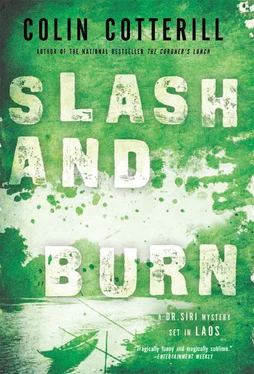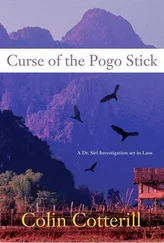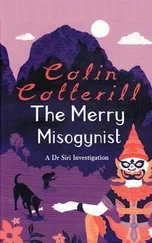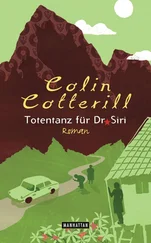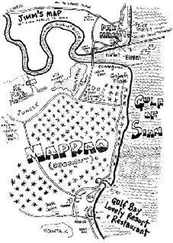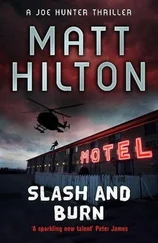Colin Cotterill - Slash and Burn
Здесь есть возможность читать онлайн «Colin Cotterill - Slash and Burn» весь текст электронной книги совершенно бесплатно (целиком полную версию без сокращений). В некоторых случаях можно слушать аудио, скачать через торрент в формате fb2 и присутствует краткое содержание. Жанр: Полицейский детектив, на английском языке. Описание произведения, (предисловие) а так же отзывы посетителей доступны на портале библиотеки ЛибКат.
- Название:Slash and Burn
- Автор:
- Жанр:
- Год:неизвестен
- ISBN:нет данных
- Рейтинг книги:5 / 5. Голосов: 1
-
Избранное:Добавить в избранное
- Отзывы:
-
Ваша оценка:
- 100
- 1
- 2
- 3
- 4
- 5
Slash and Burn: краткое содержание, описание и аннотация
Предлагаем к чтению аннотацию, описание, краткое содержание или предисловие (зависит от того, что написал сам автор книги «Slash and Burn»). Если вы не нашли необходимую информацию о книге — напишите в комментариях, мы постараемся отыскать её.
Slash and Burn — читать онлайн бесплатно полную книгу (весь текст) целиком
Ниже представлен текст книги, разбитый по страницам. Система сохранения места последней прочитанной страницы, позволяет с удобством читать онлайн бесплатно книгу «Slash and Burn», без необходимости каждый раз заново искать на чём Вы остановились. Поставьте закладку, и сможете в любой момент перейти на страницу, на которой закончили чтение.
Интервал:
Закладка:
4
The Lao Justice Minister’s office had an adjoining suite with a conference table made of teak. It was so large and heavy they’d had to cut it in slices in order to get it up to the third floor. Its reassembly hadn’t been terribly successful and there were two incongruous lines of Happy New Year adhesive tape stretching across the table top to disguise the joins. At this table sat the American delegation to one side, and the Lao to the other. There were two perfectly good table ends but it appeared nobody was allowed to sit there. Instead, they faced off like American football teams. There were seven Americans, not including the interpreter, and eight Lao.
Siri wasn’t terribly surprised to learn that the Lao simultaneous interpreter, Judge Haeng’s cousin Vinai, was in bed with laryngitis. To the vice-minister’s displeasure, the meeting was conducted through the competent but unverifiable translation of Peach, the missionary’s daughter. But so confident was she in her interpretation that both sides soon settled into a seamless row of pleasantries and introductions. Like all very good translators she quickly became invisible; invisible that is to all except for Judge Haeng who ogled and grinned at her from across the table.
Like all the leaders, Minister of Justice Bounchu was a military man. For some, the transition from camouflage to charcoal gray had been an uneasy one. He’d been fighting for most of his life and living in the caves of Sam Neua throughout the revolution. It was obvious he’d be more comfortable with mortar fire exploding around him than he was in diplomatic circles. Despite his bulk and his ferocious countenance, there was something timid about him, like a polar bear shaved and put in an ill-fitting suit. This ministry was his sweet fish reward at the end of a heroic life, more a position than a role. He smiled and nodded and left all the details to his minions. He sat opposite the Sumo-in-sundress head of the American delegation, Representative Elizabeth Scribner, Democrat, Rhode Island. Selected for this mission presumably because of her bulk, Mrs. Scribner was not a smiling, all-friendly politician. In fact, one would have to assume she was elected to congress as a result of intimidation.
Siri, still with no idea why he’d been called for, listened to the minister’s address with its pompous language, then to the reading of the early communications between the Chief of Mission of the United States consulate in Vientiane and the Ministry of Foreign Affairs of the Pathet Lao Government. Saigon had fallen to the Vietminh in April of 1975, and the Pathet Lao claimed the prize of Vientiane eight months later during a well-orchestrated handover. Being good sports, they invited the US consulate to remain in operation, insisting only on the removal of CIA personnel. That left a grand total of six, all confined to Vientiane with the odd trip across the Mekhong for shopping in Nong Kai or other pleasures in Bangkok. The US State Department had attempted to sneak in one or two spooks as cleaning staff or bookkeepers but the PL had a comprehensive list of the names and backgrounds of CIA operatives provided by the very resourceful Soviets. Apart from a little housekeeping, the remaining consulate staff were an ornamental lot. They had nothing much else to do but send memos to the PL. No consulate personnel had been allowed to travel around Laos. The US aid agency-USAID-compound had been closed and its employees hustled onto flights out of the country. So only a few dozen US citizens officially remained. Some were teaching, or married to Lao citizens, or working for the Quakers or Mennonites.
According to the communications, it appeared that a year earlier the consulate had made a request that they be allowed to investigate claims of US citizens held in captivity in Lao prisoner-of-war camps. The Lao had pointed out that following a unilateral program referred to as Homecoming, all known military and political prisoners in Laos and Vietnam had been handed back to their delegations. They added that the war was over and there was absolutely no point in hanging on to them anyway. But the Missing In Action-MIA-lobby in the US was strong and evidence was constantly mat erializing to indicate that there were indeed American ex-servicemen on Lao soil. In a number of memos, the PL had reminded the consulate that, according to US policy following the Treaty of Geneva in 1962, there were no American military on Lao soil to begin with. As there were officially no ground troops or US air force personnel active in Laos, with tongues in cheeks the PL had asked how these MIAs had been clumsy enough to find their ways into prisoner-of-war camps in the middle of a neutral country. The notes back and forth appeared to have reached a stalemate.
As they were unable to travel and had no permission to investigate MIA claims, the US embassy in Bangkok invited Lao citizens to bring evidence of downed aircraft and/or remains of airmen to their Vientiane consulate where officials would check their veracity. There were rumors, none confirmed, that they were offering cash rewards for genuine finds. They could never have envisaged what a stampede this would produce. The queues extended around the block. Citizens had gone to great lengths to secure laissez-passers to travel to the capital to present their souvenirs. Others sent packages through the unreliable post with details of where to forward the checks. One clerk from the Central Identification Laboratory in Bangkok was responsible for sifting through a mountain of bones-most of them from pigs-and teeth: some from elderly relatives who hadn’t quite finished with them. There were dog tags fashioned out of beer bottle tops and photographs of Uncle Dtoom who was albino but from the right angle looked just like an American airman. One hopeful claimant sent the front fender of an old Ford which he swore had fallen from the sky whilst he was working in his paddy.
Despite their obvious inauthenticity, all of the claims had to be labeled and documented. The site of a supposed discovery was marked on a map and after six months there were more crosses on that map than were military personnel active in the US armed forces. It was as if every village in Laos had its own downed airman. Yet, in all that time, not one positive identification was made and the program was abandoned. The Washington lobby was not amused so the US embassy in Bangkok moved on to its Plan B, to arrange for joint US/Lao teams to go off into the countryside to investigate claims in a professional manner.
All these recommendations were read out in painful detail during that long morning in Minister Bounchu’s meeting room. Each guest had his or her own bottle of syrupy green Fanta for refreshment, and bottomless cups of lukewarm tea were available. The Americans, unaccustomed as they were to Lao all-day meetings, drank thirstily. The Lao barely touched their drinks. After an hour and a half it became apparent why. There was a good deal of seat-shifting and leg-crossing from the American contingent and it was obvious that they were in need of a toilet break. Yet the seriousness of the day’s affairs called for strict adherence to protocol. Nobody wanted a gaffe of etiquette to stymie the talks. Being the first to go to the toilet could be seen as a sign of weakness. So they held it in. The cadre reading the reports had not yet reached March 1978. There were still four months of communications to go and faint smiles on the faces of the Lao delegation.
But after another half an hour Congresswoman Scribner had apparently reached her limit. She cleared her throat, nodded politely, and sighed before beginning a serious conversation with the interpreter, Peach. The Lao, unused to interruptions during official gatherings, looked at her in astonishment. Peach, well aware of the infringement, apologized several times before passing on the Congresswoman’s message.
Читать дальшеИнтервал:
Закладка:
Похожие книги на «Slash and Burn»
Представляем Вашему вниманию похожие книги на «Slash and Burn» списком для выбора. Мы отобрали схожую по названию и смыслу литературу в надежде предоставить читателям больше вариантов отыскать новые, интересные, ещё непрочитанные произведения.
Обсуждение, отзывы о книге «Slash and Burn» и просто собственные мнения читателей. Оставьте ваши комментарии, напишите, что Вы думаете о произведении, его смысле или главных героях. Укажите что конкретно понравилось, а что нет, и почему Вы так считаете.
